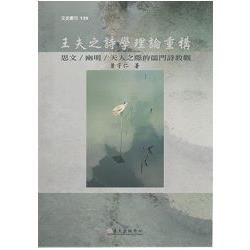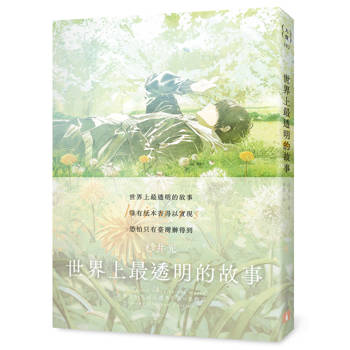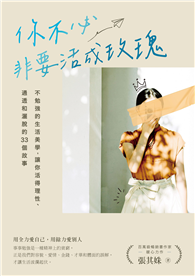提要
本論文主要在重構王夫之的詩學理論,首先抉發出遺民船山憂患詩學底蘊,由此展開對興觀群怨、情景交融論、詩樂之理一、意與勢等議題的重新討論,凸顯其詩論的重心──情,也據以觀察船山如何透過「正情」來重塑這些老議題,據以重現他心目中的詩學風貌。
詩歌發展至明清之際,原有的抒情性已然面貌不顯,淹沒於詩史、以文為詩等種種體類上的陵越;在創作上則遭以意為主、夾敘夾議等的侵犯;而當世小說的風行,更使得詩歌一道的簡、雅等受到強力挑戰,呈現出抒情與敘事的緊張性;再者,格律、詩法大行其道下,又使得詩人元聲為其所拘滯而不能出,詩歌書寫隱然成為有法可循的摹寫,而非詩人一時一事的展開,讓詩歌的真誠性受到質疑。
因之船山認為詩歌已然成為質地有染、成色不純的製作,其倡言興觀群怨四者的融通,經由情的收攝與轉進而成為一心之洞燭與朗現,由人之情而得窺天之性,用以超越晚明一片情論的差相彷彿;再者需復之以樂,那是以樂音作為抒情的基底,凸顯其抒情內核,強化其抒情振幅,重新使樂語歸之於樂德,回到秩序與道德未曾崩解的太和之境;而詩人既經由情的觀照與樂的感通提昇至天人之際,詩歌即應體現為如此提昇與啟悟的過程,船山以此重寫「詩以意為主」的主張,讓詩意體現出時序中經由思辨與反省過程,而迥非故實引用與案頭上的作意。
船山詩學並非孤立的領域,就其思想的一致與一貫看來,實不離其天人之學的觀照,而同時也是心性論的延伸;主情的詩歌更是位處天崩地解的年代的遺民,藉著詩歌古老的「詩可以觀」本具有的言志向度,回應世運衰頹據之所由,以及藉著讓詩歌抒情性克服時間的天敵,遺民船山終將此孤忠丹心寄予後世的一線之傳,也讓自身克服當代的天崩地解,在詩歌中得到真正的安頓。
關鍵詞:憂患詩學、抒情傳統、興觀群怨、情景交融、以樂論詩、詩以意為主、意與勢
| FindBook |
有 6 項符合
王夫之詩學理論重構:思文∕幽明∕天人之際的儒門詩教觀的圖書 |
 |
王夫之詩學理論重構:思文∕幽明∕天人之際的儒門詩教觀 作者:曾守仁 出版社:國立台灣大學出版中心 出版日期:2012-04-01 語言:繁體書 |
| 圖書選購 |
| 型式 | 價格 | 供應商 | 所屬目錄 | 二手書 |
$ 230 |
二手中文書 |
$ 379 |
詩 |
$ 422 |
中文書 |
$ 422 |
中國古典文學 |
$ 432 |
文學作品 |
$ 432 |
小說/文學 |
|---|
| 圖書館借閱 |
| 國家圖書館 | 全國圖書書目資訊網 | 國立公共資訊圖書館 | 電子書服務平台 | MetaCat 跨館整合查詢 |
| 臺北市立圖書館 | 新北市立圖書館 | 基隆市公共圖書館 | 桃園市立圖書館 | 新竹縣公共圖書館 |
| 苗栗縣立圖書館 | 臺中市立圖書館 | 彰化縣公共圖書館 | 南投縣文化局 | 雲林縣公共圖書館 |
| 嘉義縣圖書館 | 臺南市立圖書館 | 高雄市立圖書館 | 屏東縣公共圖書館 | 宜蘭縣公共圖書館 |
| 花蓮縣文化局 | 臺東縣文化處 |
|
|
圖書介紹 - 資料來源:TAAZE 讀冊生活 評分:
圖書名稱:王夫之詩學理論重構:思文∕幽明∕天人之際的儒門詩教觀
詩歌發展至明清之際,原有的抒情性已然面貌不顯,淹沒於詩史、以文為詩等體類上的陵越;創作上則遭以意為主、敘事繁冗等的侵犯;當世小說、戲曲的風行,更使得強調簡、雅、凝鍊的詩歌一道受到強力挑戰,呈現出抒情與敘事的緊張性;在格律、詩法大行其道下,又使得詩人元聲、元氣拘滯而不能出,詩歌的真誠性受到質疑。
因此,船山倡言興觀群怨四者融通,經由情的收攝與轉進成為一心之洞燭與朗現,由人之情而得窺天之性;藉著抒情自我的靈視與觀照,那既是心性論上的延伸,同時也回應世運衰頹之所由,藉以辨明、超越晚明一片情論的差相彷彿。至此,遺民船山終能克服時間的天敵,其淒心熱魄得以安頓於(如白地光明錦)詩歌之中,將此孤忠丹心寄予後世,而那也是鼎革之後唯一的乾淨之土,讓自身超出了當代天崩地解。
作者簡介:
曾守仁
臺灣大學中國文學博士,現任輔仁大學中文系助理教授。主要研究領域包括宋、明、清詩學與文學理論。期刊、專書論文包含:竟陵派、錢謙益、王夫之研究論文數篇;《金聖嘆評點活動研究──擬結構主義的重構與解構》,暨南國際大學碩士論文,1998年,黃錦樹、高大威指導;《王夫之詩學理論重構:思文∕幽明∕天人之際的儒門詩教觀》,臺灣大學博士論文,2008年,鄭毓瑜指導。
章節試閱
提要
本論文主要在重構王夫之的詩學理論,首先抉發出遺民船山憂患詩學底蘊,由此展開對興觀群怨、情景交融論、詩樂之理一、意與勢等議題的重新討論,凸顯其詩論的重心──情,也據以觀察船山如何透過「正情」來重塑這些老議題,據以重現他心目中的詩學風貌。
詩歌發展至明清之際,原有的抒情性已然面貌不顯,淹沒於詩史、以文為詩等種種體類上的陵越;在創作上則遭以意為主、夾敘夾議等的侵犯;而當世小說的風行,更使得詩歌一道的簡、雅等受到強力挑戰,呈現出抒情與敘事的緊張性;再者,格律、詩法大行其道下,又使得詩人元聲為其所拘...
本論文主要在重構王夫之的詩學理論,首先抉發出遺民船山憂患詩學底蘊,由此展開對興觀群怨、情景交融論、詩樂之理一、意與勢等議題的重新討論,凸顯其詩論的重心──情,也據以觀察船山如何透過「正情」來重塑這些老議題,據以重現他心目中的詩學風貌。
詩歌發展至明清之際,原有的抒情性已然面貌不顯,淹沒於詩史、以文為詩等種種體類上的陵越;在創作上則遭以意為主、夾敘夾議等的侵犯;而當世小說的風行,更使得詩歌一道的簡、雅等受到強力挑戰,呈現出抒情與敘事的緊張性;再者,格律、詩法大行其道下,又使得詩人元聲為其所拘...
»看全部
目錄
導 論 船山詩學概述與抒情系譜之建構……………1
一、抒「情」的開場………………………………2
(一)船山憂患詩學………………………3
(二)情的「認識」論………………………7
二、所謂「俗論」:船山詩論的當代指向…………13
三、抒情系譜再探與回應…………………………21
四、問題與章次……………………………………32
第一章 船山詩論顯影:以詩史為核心的考察………43
第一節 詩與史的互諍…………………………………44
第二節 詩語與實錄……………………………………50
一、情與事的融合………………………...
一、抒「情」的開場………………………………2
(一)船山憂患詩學………………………3
(二)情的「認識」論………………………7
二、所謂「俗論」:船山詩論的當代指向…………13
三、抒情系譜再探與回應…………………………21
四、問題與章次……………………………………32
第一章 船山詩論顯影:以詩史為核心的考察………43
第一節 詩與史的互諍…………………………………44
第二節 詩語與實錄……………………………………50
一、情與事的融合………………………...
»看全部
商品資料
- 作者: 曾守仁
- 出版社: 國立台灣大學出版中心 出版日期:2012-04-01 ISBN/ISSN:9789860312010
- 語言:繁體中文 裝訂方式:平裝
- 類別: 中文書> 華文文學> 華文文學研究
|











